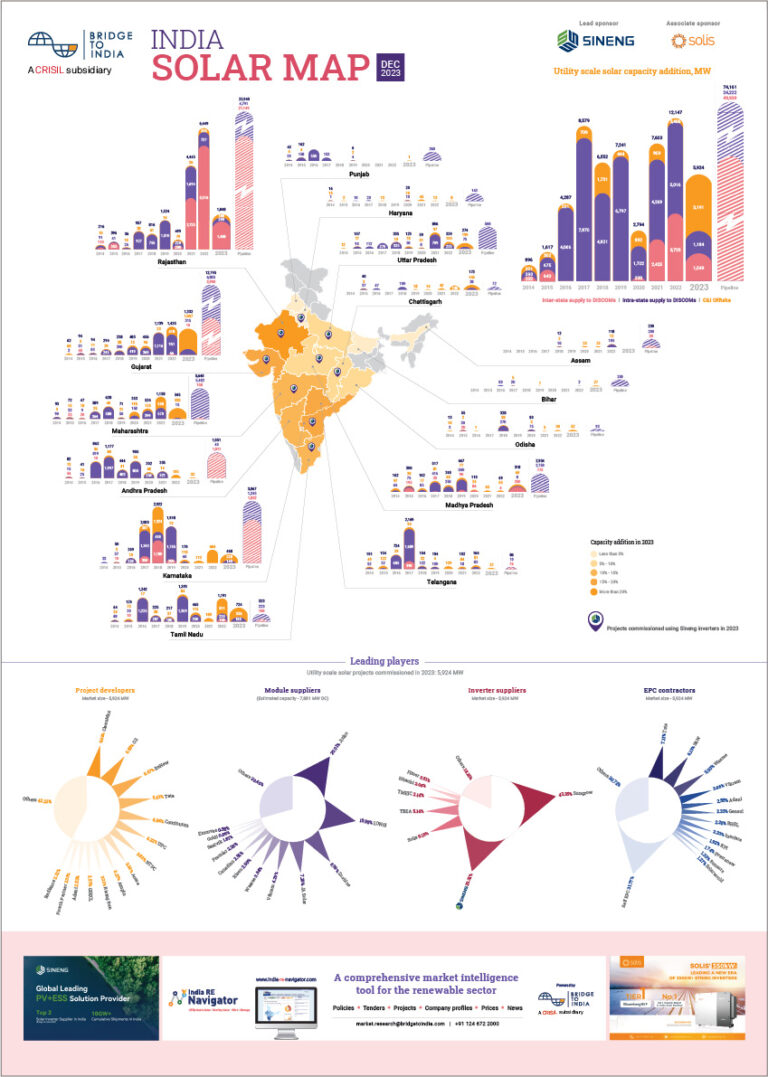Telangana successfully completed auction for 2,000 MW of grid connected, ground mounted solar projects in India in August 2015 and PPAs were expected to be signed by October 2015 (refer). However, there has been a considerable delay in signing these PPAs. The process appears to be stuck at senior levels in the state government purportedly because the subsequent auction processes completed by Punjab and NTPC (500 MW under National Solar Mission) received record low tariffs of INR 5.09 and 4.63/kWh respectively.
- Out of 1 GW of projects allocated under state policies in the past two years, nearly 40% of capacity is either significantly delayed or cancelled for various reasons
- Policy certainty and delays in state government solar initiatives are a major concern for the Indian solar industry
- Such delays and uncertainties are a huge setback to private sector confidence, especially affecting the plans of foreign investors and suppliers
Telangana’s 2000 MW bid was the single largest allocation in the country till date. Bids were received for almost 5,000 MW from 101 developers with successful bids falling in the range of INR 5.17 – 5.88/kWh. It is relevant to note that since then, auctions have been completed by Punjab (lowest tariff of INR 5.09 kWh) and NTPC (INR 4.63/kWh) at lower tariffs (refer1, refer 2).
We have seen similar instances in past when the state governments either refused to sign PPAs after the bid results were announced or they retrospectively changed allocation criteria to suit their requirements. In March 2014, Chhattisgarh asked developers to match the L1 bid retrospectively leading Welspun to withdraw from a 28 MW project that it had won fairly under the state’s 100 MW tender. In Tamil Nadu, the state power generation company TANGEDCO signed PPAs for 708 MW in 2014 (refer) but the state electricity regulator (TNERC) cancelled all projects on the grounds that the bid tariffs were not pre-approved by it.
While private developers face the brunt of such policy flip-flops, some developers exploit these uncertainties by bidding aggressively and deliberately delaying project implementation to benefit from falling equipment prices. This, of course, does not augur well for the industry particularly as international investors expect a transparent and level playing field. Some of the international equipment suppliers and those planning manufacturing facilities for the Indian market may also be forced to reconsider their plans because of such uncertainties.
As per BRIDGE TO INDIA analysis, out of 1 GW of projects allocated under state policies in the past two years, nearly 40% of the capacity is either significantly delayed or cancelled for various reasons. As of today, solar projects pipeline under state policies in India stands at about 10 GW (refer). But if past track record is any indicator, it is highly likely that only about 60% of this capacity will be completed on time.
Given that state policy projects are expected to contribute the bulk of 60 GW utility scale solar capacity target for 2022, it is increasingly imperative to improve and enforce the policy framework at state level.












